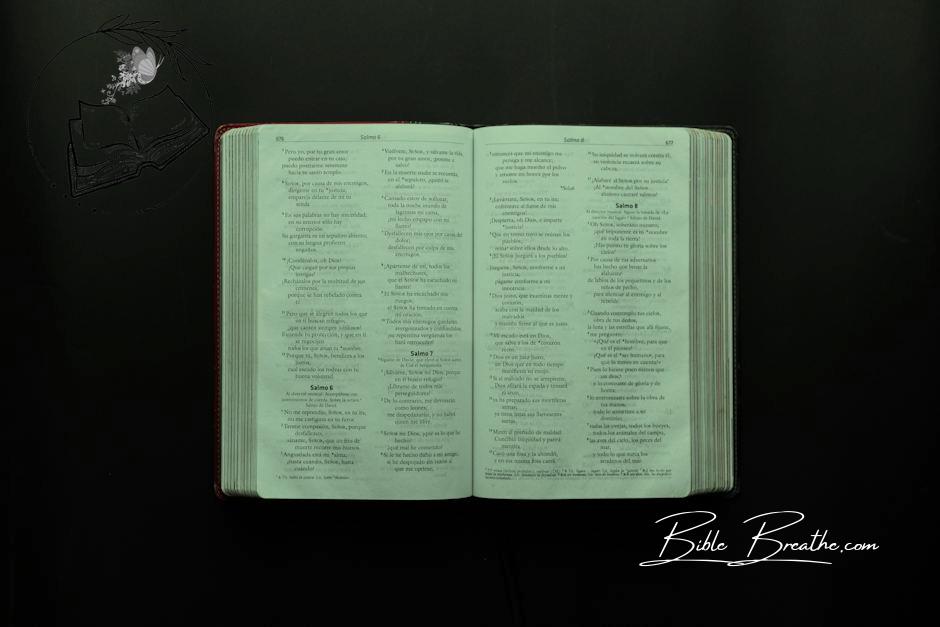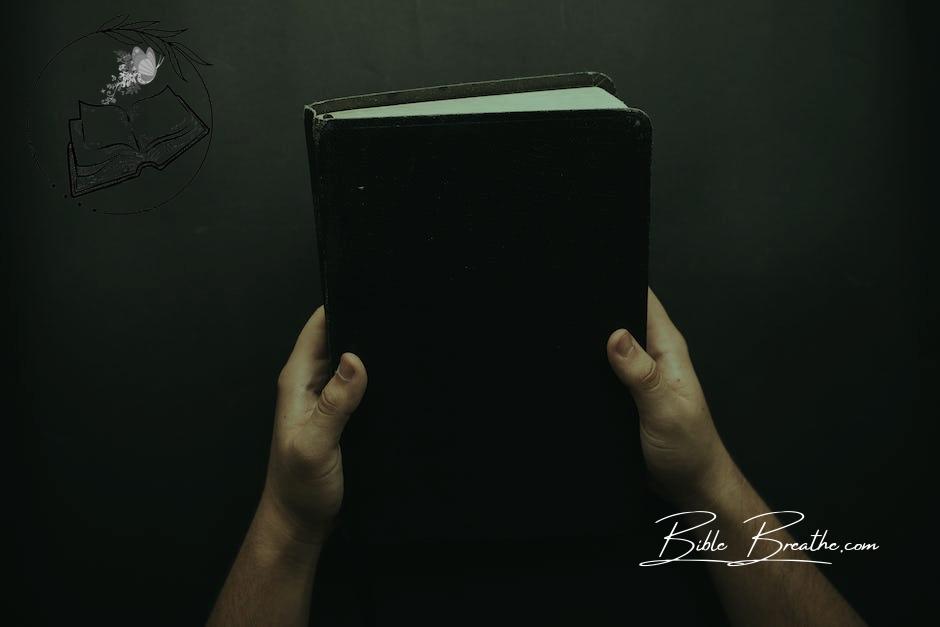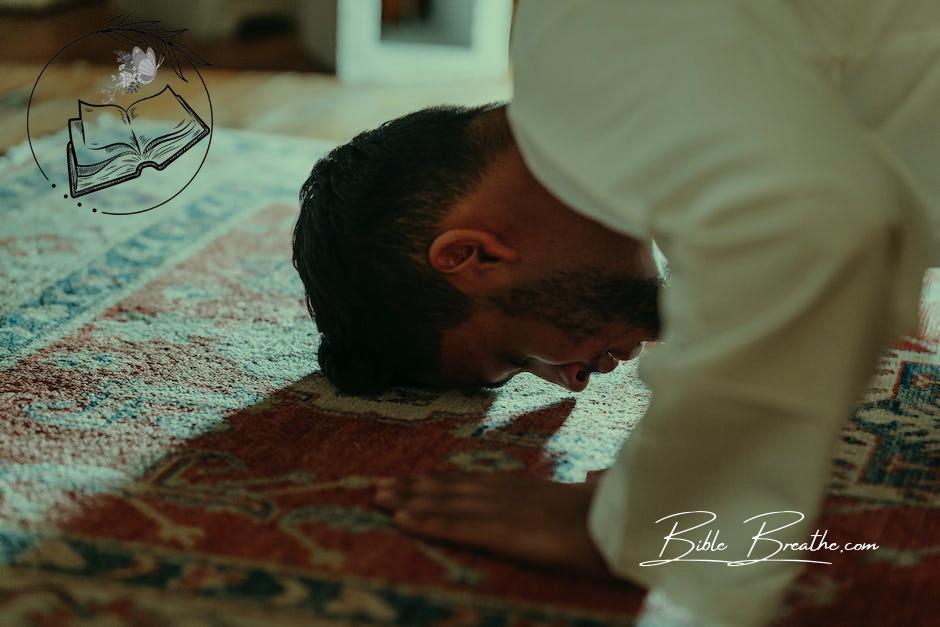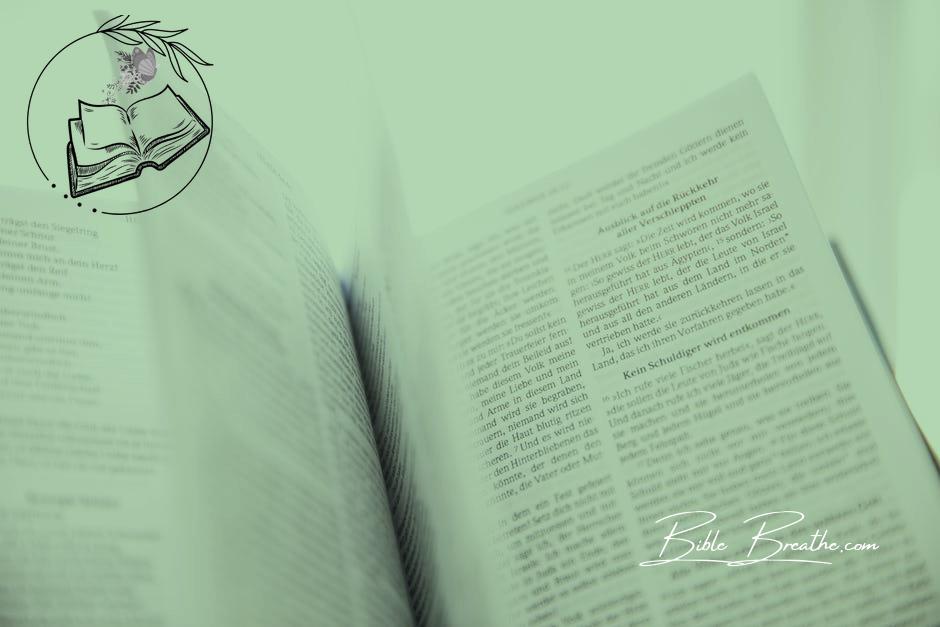“Ever wondered, ‘Where’s Rahab in the Bible?’ Well, folks, Rahab might be the Bible’s hidden gem.
She’s not in the spotlight like David or Moses, but her story packs a punch.
You see, Rahab, she’s like the underdog who defied the odds.
She shows up big time in Joshua, where she helps out some Israelite spies in the city of Jericho.
But hold on, her journey doesn’t stop there.
You’ll find her name in Hebrews and Matthew, and guess what?
She’s not just some character; she’s all about transformation and redemption.
Now, here’s the kicker.
Rahab’s past?
Yeah, it’s no fairy tale.
She started as a prostitute.
But God, He’s got a way of flipping the script.
Rahab’s in the lineage of King David and even Jesus Christ!
I mean, talk about a comeback story!
So, let’s dive deep into Rahab’s incredible journey, her role in the Jericho tale, and the powerful message of faith and redemption she brings to the table.
Get ready for a story that’ll rock your world!”
🌟
Key Takeaways
- Rahab’s journey from a prostitute to a significant figure in biblical history highlights the transformative power of faith and God’s grace. Her story exemplifies that no one is beyond redemption or outside God’s plan for redemption and salvation.
- Rahab is portrayed in a dual light in the Bible. Initially introduced as a woman of questionable reputation, she undergoes a radical transformation through her faith and actions, ultimately being commended for her faith in the New Testament (Hebrews 11:31) and mentioned in the genealogy of Jesus (Matthew 1:5).
- The story of Rahab underscores the overarching message of redemption and God’s grace found throughout the Bible. It serves as a testament to God’s willingness to use unlikely individuals and circumstances to accomplish His divine purposes and bring about salvation for all.
- Rahab’s inclusion in the lineage of Jesus Christ emphasizes the inclusivity and universality of God’s plan of salvation. Her presence in Jesus’ genealogy signifies that redemption is available to all, regardless of their past or social standing, illustrating the expansive reach of God’s grace and love.
- Rahab’s story encourages believers to have faith and trust in God’s transformative power. It reminds them that, through faith and obedience, they too can be part of God’s redemptive plan and play a significant role in His kingdom.
Rahab’s Incredible Journey: From Harlot to Hero

Photo modified by BibleBreathe.com. Original photo by Luis Quintero on Pexels
In the tapestry of the Bible’s stories, there’s a thread that’s often overlooked, a thread woven with complexity, courage, and faith.
It’s the story of Rahab, a woman who defied societal labels and stepped into the spotlight of faith.
Let’s take a stroll through the pages of history and discover where Rahab’s name shines brightly in the grand story of the Bible.
Rahab: Beyond Labels, a Woman of Faith
Rahab’s story is like a diamond in the rough, multifaceted and filled with surprises.
In her time, she bore a label that carried judgment—a harlot.
But Rahab’s tale goes deeper; it’s about a soul whose faith soared beyond societal confines.
The chapters that unveil Rahab’s life are found in the book of Joshua.
She dwelled in the ancient city of Jericho, surrounded by towering walls.
However, within this fortress, Rahab’s life took a remarkable turn that would forever mark her place in the annals of scripture.
Her pivotal role in aiding the Israelite spies sent by Joshua before the siege of Jericho is a testament to her bravery and unwavering faith.
By sheltering these spies and leading the pursuing authorities astray, she not only saved their lives but also played a vital role in the eventual fall of Jericho.
Rahab’s actions reveal that faith can bloom in unexpected circumstances, and heroes can emerge from the most unlikely places.
“By faith, Rahab the harlot did not perish with those who did not believe when she had received the spies with peace.” – Hebrews 11:31 (KJV)
Rahab’s Link to King David and Jesus Christ
Rahab’s story doesn’t stop at Jericho’s walls.
Astonishingly, her life became intertwined with the lineage leading to King David and, ultimately, Jesus Christ.
This connection underscores the redemptive power of faith.
In the genealogy recorded in the book of Matthew, Rahab is explicitly mentioned as one of Jesus Christ’s ancestors.
This inclusion reminds us that redemption and significance can emerge from the most unexpected lives and circumstances.
“Salmon begat Booz of Rachab…” – Matthew 1:5 (KJV)
Rahab’s journey, from the shadows of a sinful city to a place of honor in the biblical lineage, serves as a powerful reminder that our past doesn’t define our future.
It illustrates that faith can illuminate even the darkest corners of our lives.
This is Rahab’s story, an epic that shouts about the boundless grace of God and the transformative strength of faith.
Her life resonates with us, echoing through the ages, and telling us that, in the midst of life’s complexities, grace and purpose are always within reach.
Rahab in the Bible: A Tale of Redemption and Faith – Unveiling the Bible Verses

Photo modified by BibleBreathe.com. Original photo by Luis Quintero on Pexels
Within the sacred text, Rahab’s name is mentioned explicitly in twelve significant verses.
Each mention unveils a layer of her remarkable story, revealing a woman of extraordinary strength, courage, and faith, even in the face of daunting challenges.
From the Book of Joshua to the Psalms, her name resounds through time, serving as a reminder that unexpected individuals can play pivotal roles in the grand narrative of faith.
The first time Rahab’s name graces the pages of Scripture is in the Book of Joshua.
As the Israelites prepared to conquer the city of Jericho, they sent two spies to gather crucial information.
Rahab, a woman of the city and a prostitute by profession, extended her protection to these spies.
She hid them on her rooftop and misled the pursuing authorities.
It was an act of both bravery and faith that forever altered the course of history.
Rahab: A Woman of Profound Faith and Redemption
Rahab’s story transcends her profession as a prostitute; it’s about her extraordinary act of courage and faith.
Remember the words of Jesus, “The thief cometh not, but for to steal, and to kill, and to destroy: I am come that they might have life, and that they might have it more abundantly.”
- John 10:10 (KJV).
Rahab chose life when she aided those spies, risking her own safety to protect God’s people.
Her faith in God and her recognition of His power were evident in her words to the spies.
She recounted the fear that gripped her city, acknowledging the might of the God of Israel and His deeds.
This acknowledgment paved the path for her plea for protection and mercy, not only for herself but for her family as well.
Rahab Woven into the Tapestry of Lineage
Rahab’s story doesn’t conclude here.
She later marries a man named Salmon, and their descendants include none other than King David and, ultimately, Jesus Christ.
This astounding lineage demonstrates that God can use anyone, regardless of their past, to accomplish remarkable deeds and be part of a much larger plan.
Just like Rahab, our past doesn’t define our future; our faith and actions do.
Her inclusion in the lineage of Jesus Christ highlights God’s divine ability to redeem and exalt those who are humble and marginalized.
It underscores that grace and faith can transform a life, rewriting its narrative into one of significance and purpose.
Rahab, once a woman of the city, becomes an integral thread in the tapestry of the Messiah’s ancestry, reminding us that God’s redemptive power knows no bounds.
This glimpse into Rahab’s story shines a light on her faith, redemption, and the unexpected role she played in the lineage leading to the birth of Jesus Christ.
It serves as a testimony to God’s grace and how our choices, guided by faith, can shape the course of history.
Rahab’s story continues to resonate, encouraging us to trust in God, no matter our circumstances, and believe that He can transform our lives into something beautiful and meaningful.
Rahab: Shattering Stereotypes, Embracing Faith

Photo modified by BibleBreathe.com. Original photo by Michael Burrows on Pexels
In the vast tapestry of the Bible, Rahab, often identified by her profession, rises as a beacon of remarkable faith and courage.
Let’s take a journey to peel back the layers of Rahab’s story and understand her role in the biblical narrative.
Rahab’s Faith: A Light in the Darkness
Rahab’s tale unfolds within the book of Joshua, a story showcasing trust and faith in the God of the Israelites.
Despite her societal label as a woman in a particular profession in the city of Jericho, Rahab demonstrated extraordinary faith in the God whose reputation preceded Him.
Her faith was like a spark in the darkness, illuminating a path to salvation.
In hiding the Israelite spies and guiding them strategically, Rahab displayed her trust in God’s plan.
She went against her own king and people, realizing that aligning with the Almighty held greater significance than conforming to societal expectations.
“I know that the Lord hath given you the land… for the Lord your God, he is God in heaven above, and in earth beneath.” – Joshua 2:9,11 (KJV)
Rahab’s Courage and Israelites’ Triumph
Rahab’s act of defiance against her king and her strategic aid to the Israelites played a pivotal role in the conquest of Jericho.
She aided the scouts in their reconnaissance, providing critical information and ensuring their safety, ultimately contributing to the city’s fall.
Her defiance against the oppressive norms of her society, combined with her faith, made her a crucial figure in the unfolding drama of the Israelites’ victory over Jericho.
It was an act of courage that altered the course of history.
Salvation for Rahab and Her Loved Ones
As a reward for her bravery and faith, Rahab and her family were granted salvation during the fall of Jericho.
They were spared amidst the city’s destruction, safeguarded by the scarlet cord she displayed, symbolizing her faith and obedience.
This divine act of salvation not only secured Rahab’s life but also highlighted the message of redemption and inclusivity found throughout the Bible.
It reminds us that God’s mercy knows no bounds, embracing all who turn to Him in faith.
“And she said, According unto your words, so be it. And she sent them away, and they departed: and she bound the scarlet line in the window.” – Joshua 2:21 (KJV)
Rahab’s story is a beacon of hope, illustrating the transformative power of faith, defiance against societal norms, and the boundless grace of God.
It’s a story that speaks to us today, reminding us that our faith and actions can hold unimaginable influence, shaping not only our destiny but also the destiny of those around us.
Rahab in the Bible: A Sea Monster’s Tale

Photo modified by BibleBreathe.com. Original photo by Joël Super on Pexels
Ever wondered where Rahab, the sea monster, makes a splash in the Bible?
Let’s put on our biblical diving gear and delve into the depths of this intriguing symbolism.
Rahab, the Sea Monster: A Deeper Dive
In some ancient Hebrew writings, Rahab takes on the form of a sea monster, lurking in the abyss.
You might wonder, why a sea monster?
Well, in the ancient biblical language, the sea and its monsters often symbolize chaos, the unknown, and disorder.
Rahab, as this aquatic beast, embodies the chaos and challenges that God faced and tamed during creation.
It’s like a representation of the colossal obstacles that stood in the way of God’s divine plan for His people.
Rahab’s Symbolism and God’s Rescue Mission
Picture this: Rahab, the sea monster, becomes a symbol for the adversaries and oppressors that the Israelites faced during their epic journey out of Egypt.
Just as God conquered the chaos of the sea during creation, He triumphed over the adversaries of His people, leading them from bondage to a promised land.
Now, Rahab’s tale, whether as a sea monster or a woman of faith in Jericho, weaves a powerful message.
It’s about transformation, moving from chaos to order, from enslavement to freedom.
It shouts out loud about God’s prowess to conquer the fearsome unknown, to rescue His people, and to establish a new order of faith and deliverance.
When you pass through the waters, I will be with you; and through the rivers, they shall not overwhelm you; when you walk through fire you shall not be burned, and the flame shall not consume you.” – Isaiah 43:2 (KJV)
Rahab: More Than a Monster, a Symbol of Redemption
But hold on, Rahab’s tale doesn’t end with chaos and deliverance.
It’s a story that encapsulates the grand concept of redemption.
Just as God redeemed Rahab, a woman stamped with society’s label, and raised her to a place of honor, He offers redemption to all, no matter their pasts.
Rahab’s story echoes God’s grace, showcasing that He looks beyond our exterior and offers us a chance for transformation and purpose.
In a nutshell, Rahab as the sea monster mirrors the chaotic challenges God conquers in His divine blueprint.
It’s a sign of His might in delivering His people from their adversaries, and it whispers the timeless theme of redemption found throughout the Bible.
Just as God triumphed over Rahab, He’s ready to triumph over the chaos in our lives, offering redemption and a path to a promised, purpose-filled life.
🌊🐉
Rahab: A Remarkable Tale of Hope and Redemption

Photo modified by BibleBreathe.com. Original photo by Brett Jordan on Pexels
Rahab, a woman of exceptional faith and courage, stands as a lighthouse of hope and redemption in the extensive narrative of the Bible.
Let’s dive into the profound significance of Rahab’s story, understanding her role as a symbol of hope and her connection to the lineage that led to Jesus Christ.
Rahab: An Emblem of Hope and Redemption
Rahab’s tale is one of extraordinary transformation and redemption.
Despite her past as a woman in a particular profession in the city of Jericho, she displayed faith and courage that reshaped the trajectory of her life.
Her story is a testimony to the boundless grace and forgiveness available to all, regardless of their past actions.
By choosing to align herself with the God of the Israelites, Rahab showed that faith could transcend societal judgments and personal circumstances.
Her act of aiding the spies and safeguarding their lives revealed her unwavering trust in God’s promises.
“And as soon as we had heard these things, our hearts did melt, neither did there remain any more courage in any man, because of you: for the Lord your God, he is God in heaven above, and in earth beneath.” – Joshua 2:11 (KJV)
Rahab’s Lineage: A Path Leading to Jesus Christ
Rahab’s significance goes beyond her personal redemption.
She became a part of a lineage that led to Jesus Christ, the central figure of the Christian faith.
In the genealogy outlined in the book of Matthew, Rahab is recognized as an ancestor of Jesus.
This inclusion underscores God’s ability to use unexpected individuals in profound ways, weaving their stories into the grand narrative of salvation.
“Salmon begat Booz of Rachab…” – Matthew 1:5 (KJV)
Rahab: A Display of God’s Promises and Deliverance
Rahab’s story displays God’s promises of salvation and deliverance.
Her salvation and that of her family during the fall of Jericho vividly demonstrate God’s faithfulness to those who trust in Him.
The scarlet cord, symbolizing her faith and obedience, became a mark of distinction and safety amidst the chaos of the city’s destruction.
Rahab’s story challenges us to consider the transformative power of faith and the expansive reach of God’s grace.
It calls us to recognize that our past does not define us and that God’s redemptive love can guide us to a future filled with hope and purpose.
This is the legacy of Rahab, a woman whose story echoes through the corridors of time, reminding us that no one is beyond redemption and that God’s grace knows no bounds.
Frequently Asked Questions (FAQs) About Where Is Rahab Mentioned In The Bible
How many times is Rahab mentioned in the Bible?
Rahab is mentioned in the Bible several times.
She is most notably known for helping the Israelite spies in Jericho.
Her story is found in the book of Joshua and is referenced in the New Testament in the book of Hebrews.
What is the difference between Rahab the prostitute and Rahab the sea monster?
Rahab the prostitute is a biblical figure in the Old Testament, known for her role in aiding the Israelite spies in Jericho (Joshua 2).
Rahab the sea monster (or Rahab the dragon) is a mythical creature mentioned in poetic texts like Isaiah 51:9.
They are distinct and unrelated figures.
Why is Rahab’s story significant in Christian theology?
Rahab’s story demonstrates God’s inclusivity and grace, showcasing that faith transcends social barriers.
Her story underscores God’s redemptive power, illustrating that faith and action supersede one’s past, emphasizing that anyone, regardless of background, can find favor and grace in God’s eyes.
{
“@context”: “https://schema.org”,
“@type”: “FAQPage”,
“mainEntity”: [
{
“@type”: “Question”,
“name”: “How many times is Rahab mentioned in the Bible?”,
“acceptedAnswer”: {
“@type”: “Answer”,
“text”: “Rahab is mentioned in the Bible several times. She is most notably known for helping the Israelite spies in Jericho. Her story is found in the book of Joshua and is referenced in the New Testament in the book of Hebrews.”
}
},
{
“@type”: “Question”,
“name”: “What is the difference between Rahab the prostitute and Rahab the sea monster?”,
“acceptedAnswer”: {
“@type”: “Answer”,
“text”: “Rahab the prostitute is a biblical figure in the Old Testament, known for her role in aiding the Israelite spies in Jericho (Joshua 2). Rahab the sea monster (or Rahab the dragon) is a mythical creature mentioned in poetic texts like Isaiah 51:9. They are distinct and unrelated figures.”
}
},
{
“@type”: “Question”,
“name”: “Why is Rahab’s story significant in Christian theology?”,
“acceptedAnswer”: {
“@type”: “Answer”,
“text”: “Rahab’s story demonstrates God’s inclusivity and grace, showcasing that faith transcends social barriers. Her story underscores God’s redemptive power, illustrating that faith and action supersede one’s past, emphasizing that anyone, regardless of background, can find favor and grace in God’s eyes.”
}
}
]
}

